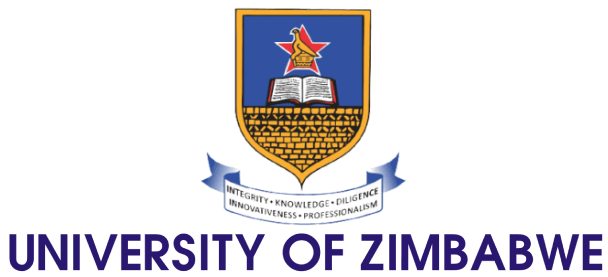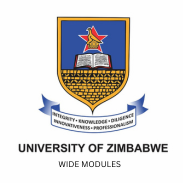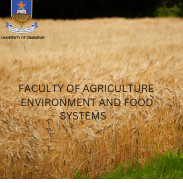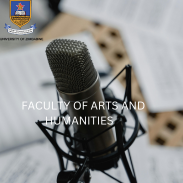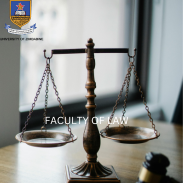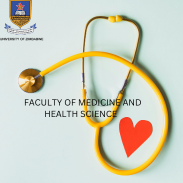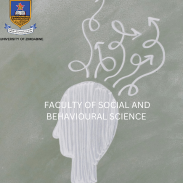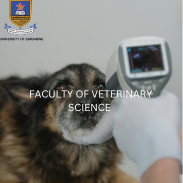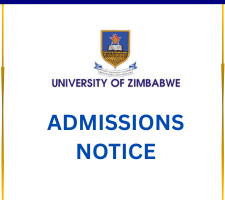| Former names: | University College of Rhodesia and Nyasaland, University of Rhodesia |
| Motto: | Knowledge, Diligence, Integrity |
| Established: | 1955 |
| Type: | Public, Comprehensive University |
| Vice Chancellor: | Professor Paul Mapfumo |
| Academic Staff: | 140 professors, 183 senior lecturers, 450 lecturers, 99 teaching and research assistants |
| Academic Staff with PhDs: | 345 |
| Undergraduate Students: | 17 718 |
| Postgraduate Students: | 2 681 |
| International Students: | 287 |
| Research and Benefctions: | US$41 Million |
| Location: | Mount Pleasant, Harare, Zimbabwe |
| Campus: | Urban |
About the University of Zimbabwe
The University of Zimbabwe is the oldest, leading and finest University in Zimbabwe which is involved in teaching and research and offers degrees, diplomas and certificates in various disciplines which include arts, agriculture, law, medicine, social studies, science, engineering, education, commerce and veterinary sciences.
The rigorous academic standards and high quality research output demanded by the University of Zimbabwe on its academic staff has raised both its academic and training profile to make its graduate a highly sought after in industry, commerce, Government departments and other organisations. All University of Zimbabwe programmes are accredited by the Zimbabwe Council for Higher Education and other professional bodies in medicine, law, engineering, accountancy, social work and veterinary science.
Our History
In 1945, Manfred Hodgson formed the Rhodesia University Association, inspired by the promise of £20,000 by J.F. Kapnek for establishing such a university. The following year, the Legislative Assembly of Southern Rhodesia adopted a motion proposed by Hodgson for the establishment of a university college to serve the needs of Rhodesia (now Zimbabwe) and neighbouring territories. The Governor of Southern Rhodesia established the Rhodesia University Foundation Fund in 1947. The Legislative Assembly accepted an offer of land in Mount Pleasant from the City of Salisbury (now Harare) for the construction of the campus in 1948. Four years later a bill was enacted for the incorporation and constitution of the university. First classes began for some 68 students on a temporary site at 147 Baker Avenue (now Nelson Mandela Avenue). Independent of the initiatives of Hodgson and the Legislative Assembly, the Central African Council's commission on higher education, led by Sir Alexander Carr-Saunders recommended the establishment of a university college to serve Rhodesia(now Zimbabwe) and Nyasaland (now Malawi), with its first preference being to integrate with the Southern Rhodesian initiative.
Construction began on the Mount Pleasant site, funded by grants from the British and Federation of Rhodesia and Nyasaland Governments, Anglo American Corporation, the British South Africa Company, the Rhodesia Selection Trust, the Beit Trust, the Ford Foundation and the Dulverton Trust and in July 1953 Elizabeth, the Queen Mother laid the foundation stone. In 1955 the British government formally adopted the institution, establishing the University College of Rhodesia and Nyasaland by Royal Charter. The college was admitted to the privilege of Special Relation with the University of London the following year and in 1957 all activities were transferred to the Mount Pleasant campus. The following year the college was granted pieces of land upon which the college farm and the Lake Kariba Research Station were constructed. In 1963 the Medical School opened and was affiliated to the University of Birmingham. After the dissolution of the Federation of Rhodesia and Nyasaland, the University College continued as an independent institution of higher education and research, open to all races. In 1970 a phased termination of the associations with the Universities of London and Birmingham began, leading to the achievement of university status as the University of Rhodesia, renamed University of Zimbabwe at independence in 1980. In 1981, the first black Principal, Prof Walter Kamba was appointed and in 1982 the Royal Charter was replaced by an Act of Parliament. Student numbers rose from 1,000 in 1980 to 2,000 by 1985, to the current 12000.
